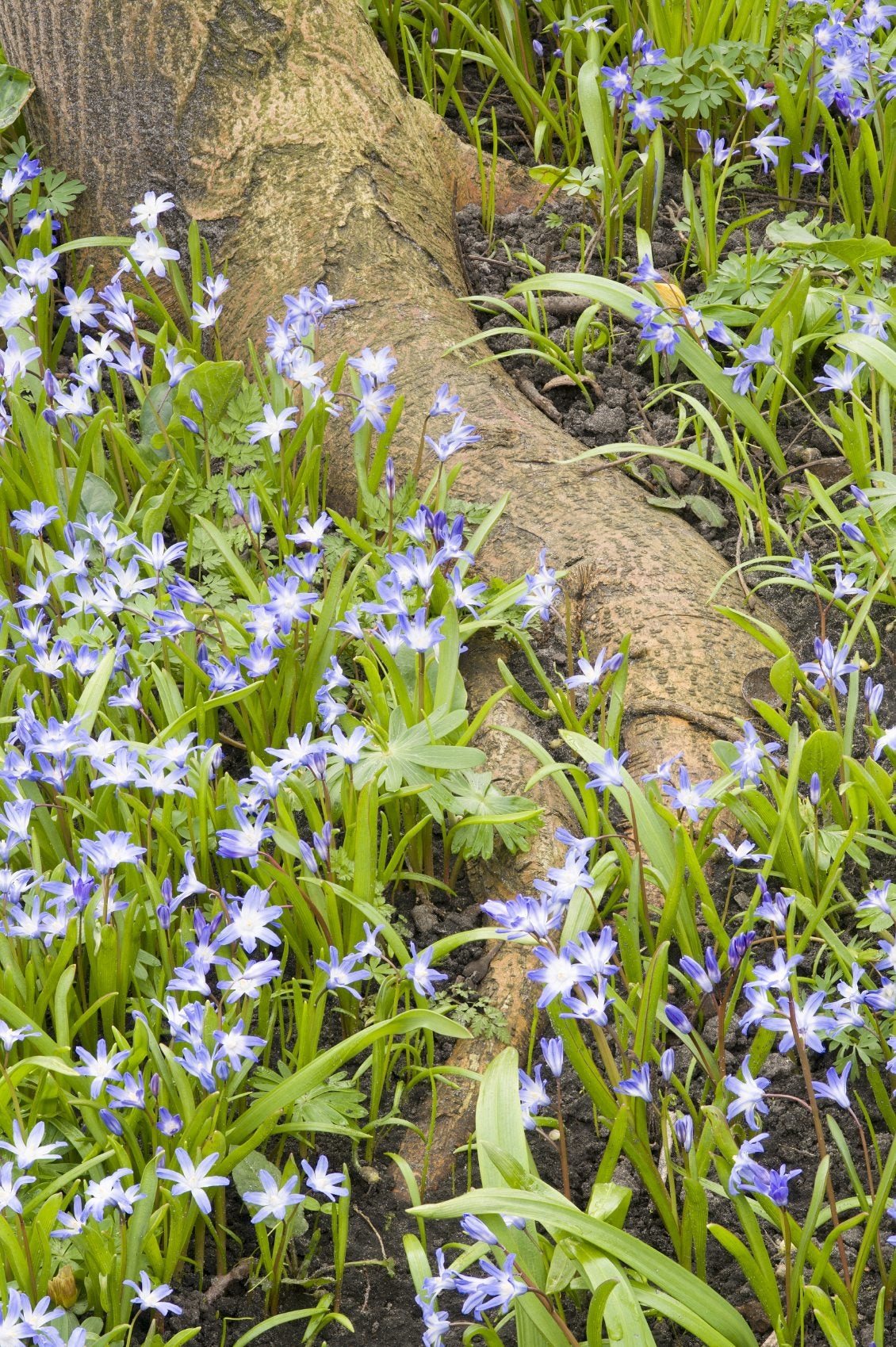Gardening Around Tree Roots: How To Plant Flowers In Soil With Tree Roots


Planting under and around trees is a dicey bit of business. This is because of the shallow feeder roots of trees and their high moisture and nutrient needs. Any plant under the wings of a massive oak, for example, might find itself starving and thirsty for much of its short life. You also chance causing damage when gardening around tree roots. If you are determined to plant under a tree, choose flowers that tolerate roots and are vigorous and practically self-sustaining.
Tree Roots in Flower Beds
The impulse to decorate under a tree is almost universal among gardeners. Turf grass struggles to survive in the deep shade under trees and turns patchy. A lively and colorful flower bed would seem to be much more preferable. However, planting around flowers in soil with tree roots is both potentially damaging to the tree and may restrict the flowers growth due to limited resources. Additionally, you must find flowers that thrive in shade. None of this is impossible, but there are a few steps to consider before planting flowers in soil full of roots.
The majority of tree roots are called feeder roots and are located in the top 6 to 12 inches (15-30 cm.) of soil. These are the roots which gather most of the plant’s water and nutrients. Due to their presence so close to the surface of the soil, these roots are easily damaged by digging. During installation of the flower bed, there is a very good chance that many of these will get cut, and is often the leading cause of tree death during construction and landscaping.
The amount of damage will depend upon the type of tree. Maples, for instance, are very root dense around the base and at the surface of soil. Oaks have larger, more horizontal roots, which might be easier when gardening around tree roots.
Flowers That Tolerate Roots
One of the things to consider when choosing flowers in soil with tree roots is how frequently you want to disturb the roots. Annuals require planting every year that perennials will not require. Perennials are also hardy after the first year and more tolerant of challenging conditions.
Choose baby plants rather than mature gallon plants because they will require a smaller hole and, therefore, disturb the soil less. Before planting your garden, make sure you plan it with an eye to where the sun will be.
Start the planning process when the tree has leafed out and place the tallest plants closest to the trunk with the lowest growing plants farther out on the edge of the bed. This allows most of the plants to experience sun without shading each other.
Sign up for the Gardening Know How newsletter today and receive a free copy of our e-book "How to Grow Delicious Tomatoes".
Planting Flowers in Soil Full of Roots
Once you have chosen your plants, it is time to make some holes. Make them as small as you can for each plant’s roots. If you come across tree roots in flower beds that are 2 inches (5 cm.) in diameter or bigger, move the flower to a new location. Cutting these roots can be damaging to the tree.
Another way to install plants under and around a tree is to build a mulch bed. Remove sod, if applicable, and place several inches of mulch around the tree. The plants can grow in the mulch and you won’t have to disturb the feeder roots. Just be careful not to pile mulch around the tree trunk itself, as this can encourage rot.

Bonnie Grant is a professional landscaper with a Certification in Urban Gardening. She has been gardening and writing for 15 years. A former professional chef, she has a passion for edible landscaping.